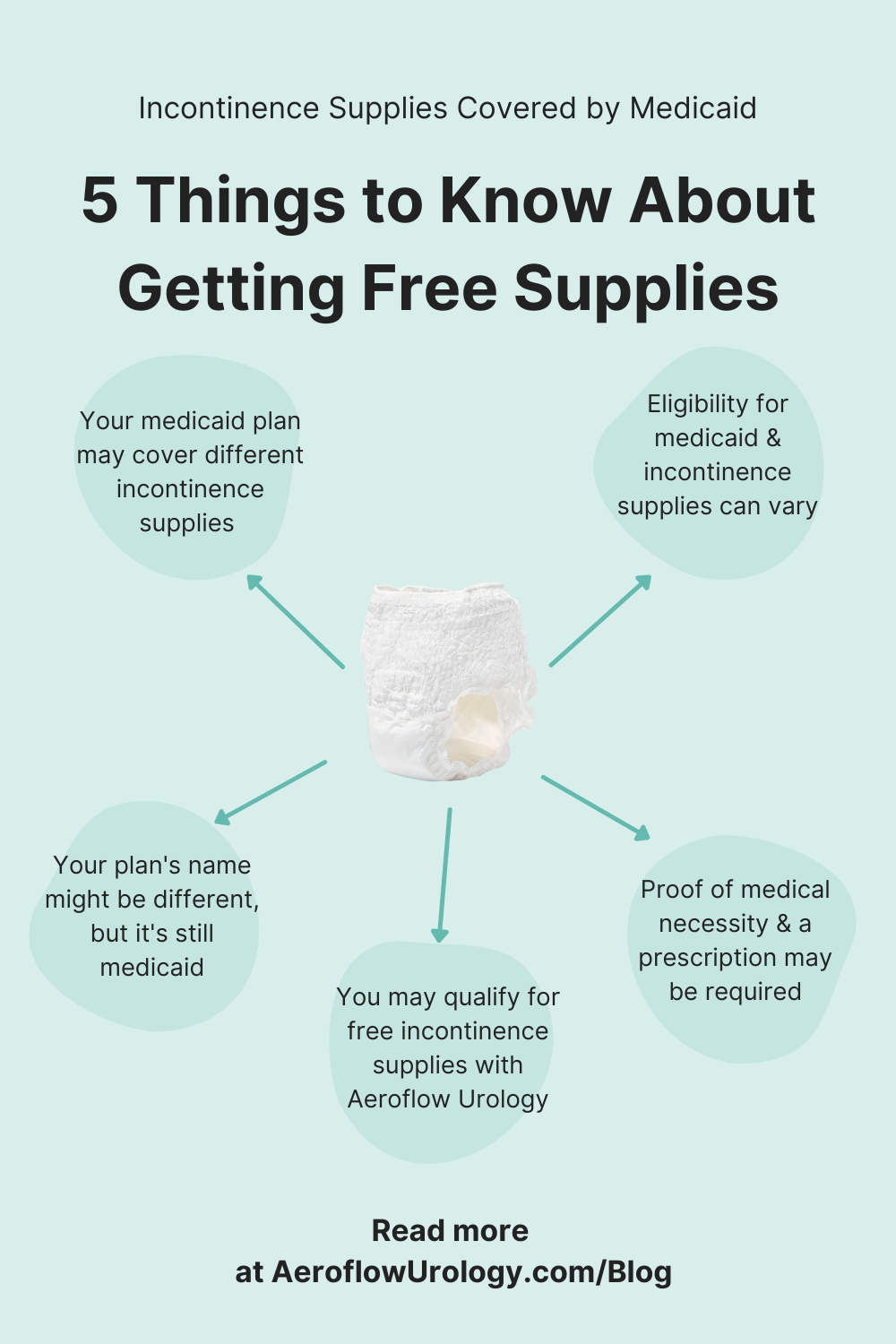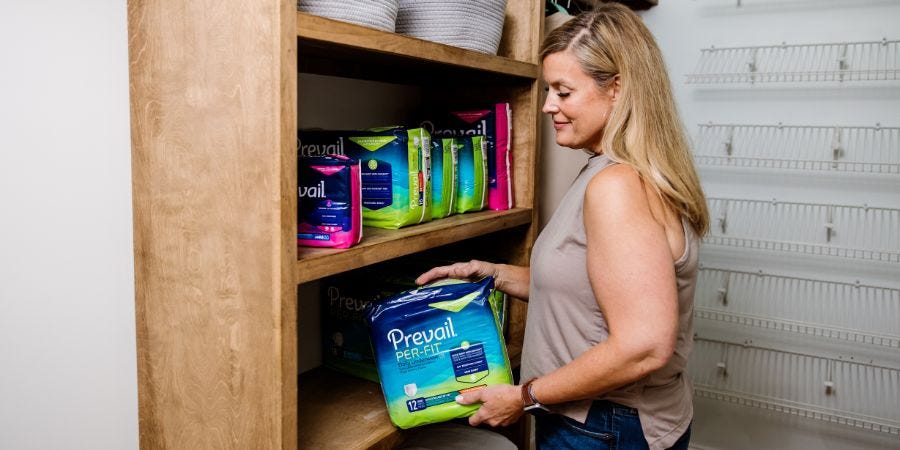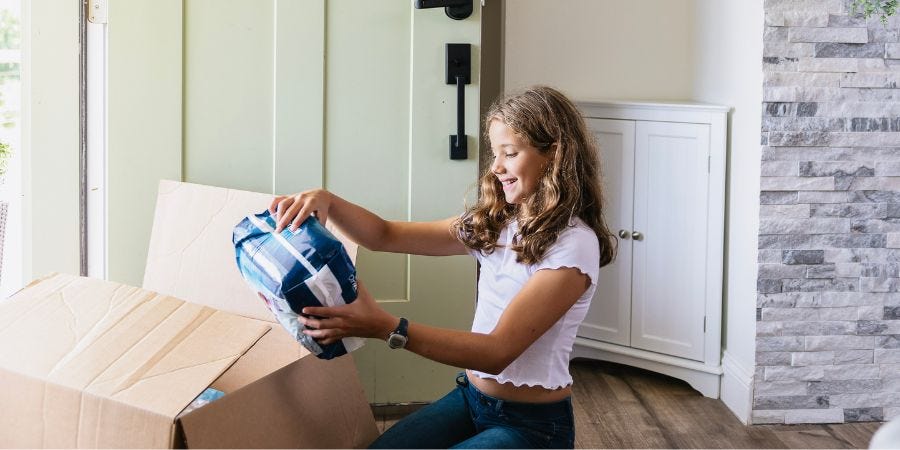Key Takeaways:
- Medicaid may cover incontinence supplies, like diapers, pull-ups, and underpads for eligible individuals.
- State-specific requirements, like prescriptions and proof of medical necessity, may be needed to access coverage.
- Even if your insurance card does not explicitly say “Medicaid” and instead says the name of a private insurer, such as UnitedHealthcare, Aetna, or Blue Cross Blue Shield, your plan could still provide you with Medicaid benefits, like incontinence supplies.
Jump To:
Your Medicaid Plan May Cover Different Incontinence Supplies
Eligibility for Medicaid & Incontinence Supplies Can Vary
Your Plan's Name Might Be Different, but It's Still Medicaid
Proof of Medical Necessity & a Prescription May Be Required
You May Qualify for Free Incontinence Supplies With Aeroflow Urology
For those who rely on incontinence products like diapers, bladder pads, or underpads to manage incontinence, Medicaid provides vital support by covering out-of-pocket costs that can otherwise add up quickly.
Millions of Americans turn to Medicaid to access essential healthcare services, including incontinence supplies, for free—and you might qualify for this coverage, too! Here are five key things to know about getting incontinence supplies through Medicaid for yourself or a loved one.


1. Your Medicaid Plan May Cover Different Incontinence Supplies
Medicaid is a public healthcare program for low-income individuals and individuals with disabilities. What's covered under Medicaid varies by state, qualification requirements, and other factors, but most Medicaid plans offer coverage for the following:
- Hospital care: Inpatient and outpatient hospital services.
- Physician services: Visits to primary care doctors and specialists.
- Laboratory and x-ray services: Tests to diagnose and treat medical conditions.
- Nursing facility care: For those aged 21 and older.
- Home health services Include medical equipment and nursing care for eligible beneficiaries.
- Family planning services: Including contraceptives and counseling.
- Pediatric services: Early and Periodic Screening, Diagnostic, and Treatment (EPSDT) services for individuals under 21.
- Medical supply coverage: Coverage for medical supplies, including incontinence supplies.
Based on your state guidelines and eligibility requirements, you or your loved one may qualify for free incontinence products through your health insurance plan. Types of incontinence products that may be free for you include:
- Adult diapers (adult briefs).
- Adult protective underwear (adult pull-on).
- Bladder control pads and booster pads.
- Pediatric diapers.
- Pediatric pull-ups.
- Underpads (chux).
- Gloves and wipes.
Check your coverage for 100% free incontinence products now!
Check your coverage for 100% free incontinence products now!
2. Eligibility for Medicaid & Incontinence Supplies Can Vary
Your eligibility for Medicaid coverage and the incontinence supplies covered by your insurance program depends on your state, medical needs, age, and household income.
- The state you live in: Unlike Medicare which is administered at a national level, Medicaid is jointly operated by the federal government and each individual state, meaning that each state has its own rules as to who qualifies for Medicaid coverage and what's covered under each plan. Your Medicaid coverage depends on the state you live in. Find out more about your state's coverage.
- Your medical needs: Medicaid coverage is often determined by your or your loved one's disability or medical condition. Many state Medicaid plans offer coverage for individuals with conditions like autism, Down syndrome, spina bifida, cerebral palsy, diabetes, postpartum incontinence, Alzheimer's disease, and more. Find out which disabilities and medical conditions make you eligible for Medicaid coverage in your state.
- Your age: Each state Medicaid program has different age requirements. For example, in some states, a child needs to be 3 years or older to qualify for free incontinence supplies through Medicaid, while another state may require a child to be 4 or 5 years old.
- Your household income: Similar to age requirements, each state sets its own household income requirements to help those with lower incomes. If your income is too high, you may live above the Federal Poverty Level (FPL) of your state, meaning you may not qualify for Medicaid coverage, therefore, you won't have coverage for incontinence supplies. Find your state's household income requirements on your state's Medicaid website.
3. Your Plan's Name Might Be Different, but It's Still Medicaid
Many Medicaid recipients might not realize their insurance plan is actually part of Medicaid, especially if it carries the branding of a private company like Aetna, Blue Cross Blue Shield, or UnitedHealthcare (UHC).
These plans are called "Medicaid Managed Care Plans." Medicaid Managed Care Plans are administered by private insurance companies (such as Aetna and Blue Cross Blue Shield) who are contracted by your state to help run its Medicaid program.
Even though these plans may be referred to as private insurance company names, they are still Medicaid-funded plans, so you may still qualify for Medicaid benefits. For instance, even though your card might say "Aetna" or the name of another private insurance provider, the plan follows Medicaid rules and benefits.
This means you're still eligible for services like incontinence supply coverage if your state Medicaid program covers them. Always check with your plan or provider to confirm benefits and eligibility under Medicaid guidelines.
4. Proof of Medical Necessity & a Prescription May Be Required
To receive incontinence supplies through Medicaid at no cost, your healthcare provider must document the medical necessity of your items. Medicaid programs generally require proof that your supplies are essential for managing a diagnosed medical condition. These documents ensure that incontinence supplies are given to people who genuinely need them.
Here's what may be required:
- Prescription for incontinence supplies: A prescription from your healthcare provider is often the first step. Your prescription outlines the type and quantity of supplies needed and confirms the items are essential for your health. Depending on your needs, your prescription may specify which products you require, like adult briefs, pull-ups, or underpads. Aeroflow Urology can help you obtain a prescription from your healthcare provider to make the process of getting free products easy.
- Certificate of Medical Necessity (CMN): Some state Medicaid programs require a CMN, which is a detailed form completed by your healthcare provider. This document tells your insurance program why your supplies are necessary and often includes information about your diagnosis and treatment plan. It's commonly used to verify eligibility and compliance with Medicaid guidelines.
- Prior authorization: Prior authorization may be needed before Medicaid approves your coverage for incontinence supplies. This means your healthcare provider must submit the required documentation to Medicaid or your Medicaid Managed Care Plan for review. Often, your supplies can only be delivered once authorization is granted.
5. You May Qualify for Free Incontinence Supplies With Aeroflow Urology
Managing incontinence doesn't have to be financially challenging or time-consuming. To get free incontinence supplies through insurance, the first step is to apply or re-apply for Medicaid (if you've been disenrolled).
Once you have Medicaid coverage, use our quick and easy-to-use Eligibility Form to check your coverage for free products. When filling out the form, be sure to enter the insurance and personal information of the person who is in need of incontinence supplies. We'll determine your coverage in 1-2 business days and let you know of your eligibility by text and email.
Once you qualify, you'll be given a personalized list of incontinence supplies, such as adult diapers, pull-ons, pull-ups, and more, to choose from, all 100% covered by your Medicaid benefits. Once we obtain a prescription from your healthcare provider, your items will be shipped directly to your home every month and will always remain free.
Check Your Eligibility
2 Easy Steps
Discover the continence care essentials available through your Medicaid plan.
Disclaimer
Information provided on the Aeroflow Urology blog is not intended as a substitute for medical advice or care from a healthcare professional. Aeroflow recommends consulting your healthcare provider if you are experiencing medical issues relating to incontinence.












